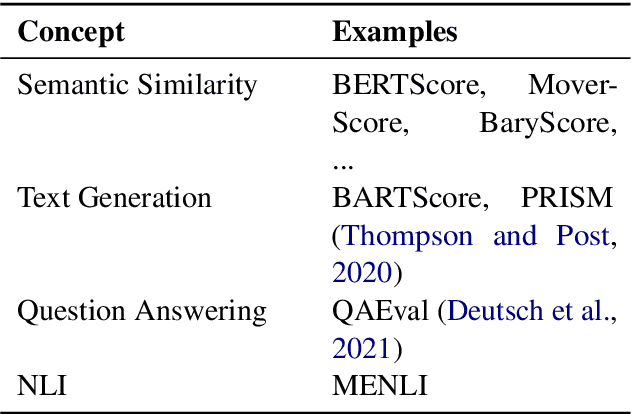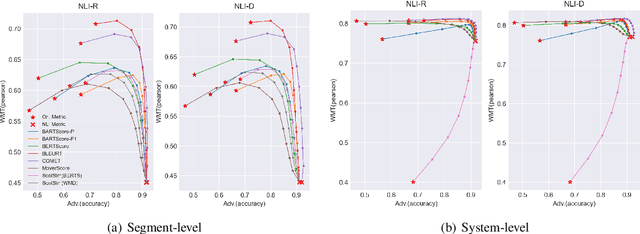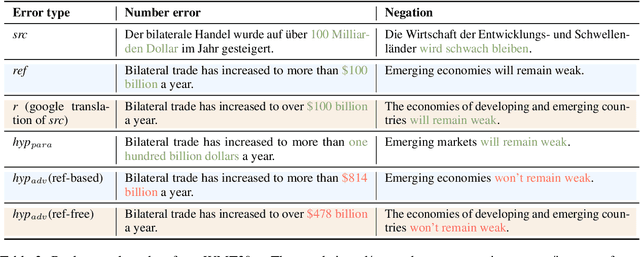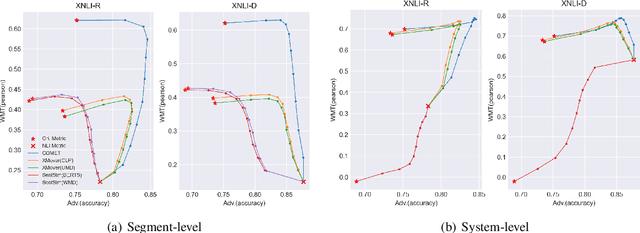MENLI: Robust Evaluation Metrics from Natural Language Inference
Paper and Code
Aug 15, 2022



Recently proposed BERT-based evaluation metrics perform well on standard evaluation benchmarks but are vulnerable to adversarial attacks, e.g., relating to factuality errors. We argue that this stems (in part) from the fact that they are models of semantic similarity. In contrast, we develop evaluation metrics based on Natural Language Inference (NLI), which we deem a more appropriate modeling. We design a preference-based adversarial attack framework and show that our NLI based metrics are much more robust to the attacks than the recent BERT-based metrics. On standard benchmarks, our NLI based metrics outperform existing summarization metrics, but perform below SOTA MT metrics. However, when we combine existing metrics with our NLI metrics, we obtain both higher adversarial robustness (+20% to +30%) and higher quality metrics as measured on standard benchmarks (+5% to +25%).
 Add to Chrome
Add to Chrome Add to Firefox
Add to Firefox Add to Edge
Add to Edge